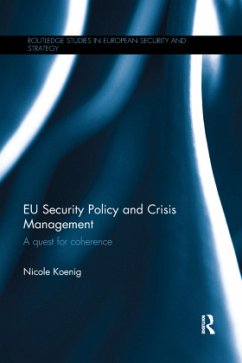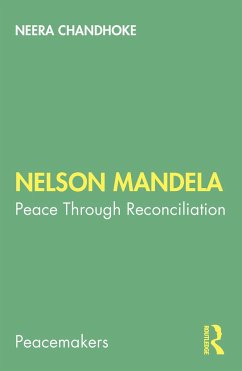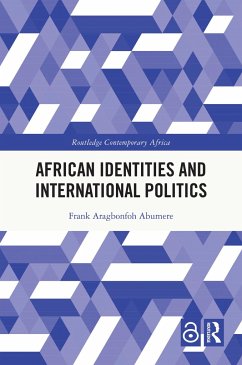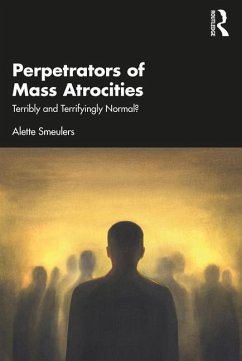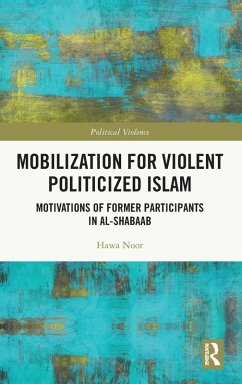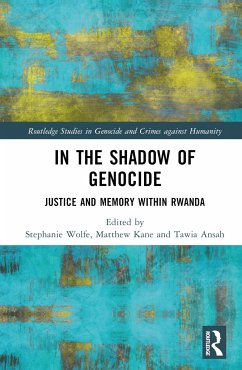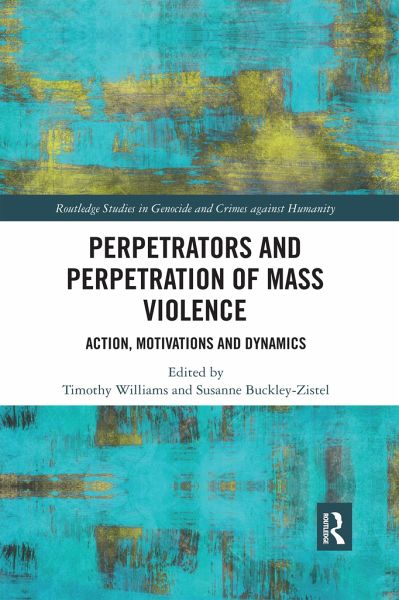
Perpetrators and Perpetration of Mass Violence
Action, Motivations and Dynamics
Herausgegeben: Williams, Timothy; Buckley-Zistel, Susanne
Versandkostenfrei!
Versandfertig in 6-10 Tagen
47,99 €
inkl. MwSt.

PAYBACK Punkte
24 °P sammeln!
As the most comprehensive edited volume to be published on perpetrators and perpetration of mass violence, the volume sets a new agenda for perpetrator research by bringing together contributions from such diverse disciplines as political science, sociology, social psychology, history, anthropology and gender studies, allowing for a truly interdisciplinary discussion of the phenomenon of perpetration. The cross-case nature of the volume allows the reader to see patterns across case studies, bringing findings from inter alia the Holocaust, the genocides in Rwanda and the former Yugoslavia, and ...
As the most comprehensive edited volume to be published on perpetrators and perpetration of mass violence, the volume sets a new agenda for perpetrator research by bringing together contributions from such diverse disciplines as political science, sociology, social psychology, history, anthropology and gender studies, allowing for a truly interdisciplinary discussion of the phenomenon of perpetration. The cross-case nature of the volume allows the reader to see patterns across case studies, bringing findings from inter alia the Holocaust, the genocides in Rwanda and the former Yugoslavia, and the civil wars in Cambodia and Côte d'Ivoire into conversation with each other.
The chapters of this volume are united by a common research interest in understanding what constitutes perpetrators as actors, what motivates them, and how dynamics behind perpetration unfold. Their attention to the interactions between disciplines and cases allows for the insights to be transported into more abstract ideas on perpetration in general. Amongst other aspects, they indicate that instead of being an extraordinary act, perpetration is often ordinary, that it is crucial to studying perpetrators and perpetration not from looking at the perpetrators as actors but by focusing on their deeds, and that there is a utility of ideologies in explaining perpetration, when we differentiate them more carefully and view them in a more nuanced light.
This volume will be vital reading for students and scholars of genocide studies, human rights, conflict studies and international relations.
The chapters of this volume are united by a common research interest in understanding what constitutes perpetrators as actors, what motivates them, and how dynamics behind perpetration unfold. Their attention to the interactions between disciplines and cases allows for the insights to be transported into more abstract ideas on perpetration in general. Amongst other aspects, they indicate that instead of being an extraordinary act, perpetration is often ordinary, that it is crucial to studying perpetrators and perpetration not from looking at the perpetrators as actors but by focusing on their deeds, and that there is a utility of ideologies in explaining perpetration, when we differentiate them more carefully and view them in a more nuanced light.
This volume will be vital reading for students and scholars of genocide studies, human rights, conflict studies and international relations.







